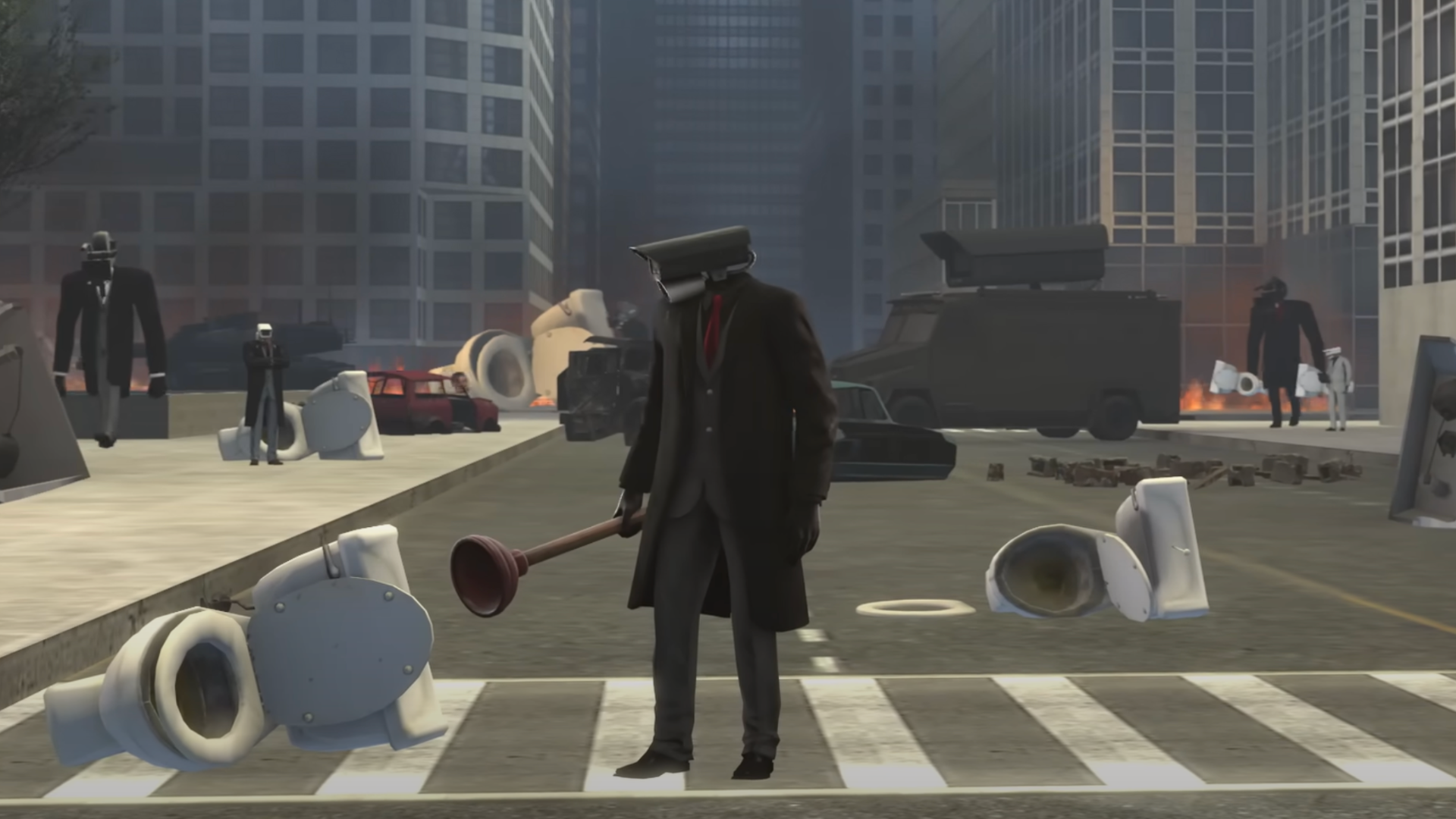A parent’s guide to Skibidi Toilet: What is it and why is it so popular?

If you have a child under the age of 14, the word “Skibidi” might ring a bell. But for many parents, this word and the YouTube series it comes from can be a bit perplexing.
Our quick guide to the phenomenon answers all your basic questions about Skibidi Toilet and its appeal to young people.
What is Skibidi Toilet and who created it?
Skibidi Toilet is an animated video series created by Georgian animator Alexey Gerasimov. Installments are posted as YouTube Shorts and later compiled into longer videos on Gerasimov’s channel “DaFuq!?Boom!” The series is animated using computer graphics and falls into a film subgenre called Machinima, a portmanteau of “machine” and “cinema.”
The plot generally depicts a dystopian world in which Skibidi Toilets — mobile toilets with human heads popping out of their bowls — are at war with humanoids who have speakers, cameras, and TVs for heads. The features of the most “human-like” characters are distorted and often warped in disconcerting or violent ways, which may make it difficult to watch for some viewers. In total, the series has more than 72 episodes, with some uploaded in multiple parts.
The first Skibidi Toilet video was posted on February 7, 2023, and has more than 164 million views, but other videos in the series have more than 250 million views. The “DaFuq!?Boom!” channel now has 41 million YouTube subscribers and over 16 billion views.
What does “Skibidi” mean?
“Skibidi” is an onomatopoeia derived from the lyrics of “Give It to Me” by Timbaland. When sped up, the chorus lyrics “so give it to me, give it to me” sound like “skibidi.” A mashup of “Give It to Me” and the song “Dom Dom Yes Yes” by Biser King is the anthem of the Skibidi Toilets and is used throughout the series.
While “Skibidi” originally had no inherent meaning, it has since evolved into a slang term used among children and teens, meaning either “bad” or “cool” depending on context.
Why is Skibidi Toilet so popular among Gen Alpha?
Gen Alpha (kids born after 2012) are Skibidi Toilet’s biggest fans, with some crossover into the youngest cohort of Gen Z. The series’ main appeal to young minds seems to be its blend of potty humor and absurdity.
The same kind of kooky content was popular with Gen Z and millennials, too: Think of the wacky children’s programming on Cartoon Network in the ’90s and early 2000s and the silliness of early viral videos. It is important to note, though, that Skibidi Toilet is more violent than this content ever was.
The series also references media franchises already familiar to Gen Alpha, like Fortnite emotes and the video game Half-Life: 2.
Are they making a Skibidi Toilet movie?
Not as of yet. In July 2023, a fake Medium post claiming that Dreamworks was planning to make a Skibidi Toilet-themed movie made the rounds on social media, which led many to believe they’d soon be seeing the series on the big screen.
Is Skibidi Toilet appropriate for children?
Skibidi Toilet’s unsettling animation style, dystopian setting, and depictions of war and violence may be disturbing for some children (and adults). However, some children also seem to find the general absurdity of its premise to be silly, not scary.
Watchdog organizations like Common Sense Media have yet to publish a determination of its suitability for children.
What is “Skibidi Toilet syndrome?”
The term “Skibidi Toilet syndrome” refers to a belief expressed across social media that the series is harmful to children and negatively affects their behavior and development. The Guardian called it a “moral panic,” but parents on Reddit have reported that the series has made their children fearful of using the toilet. These posts indicate that young children may be especially vulnerable and confused by the content.
If you’re concerned about your child’s exposure to the series online, consider using the YouTube Kids app, which does not include access to Skibidi Toilet.

